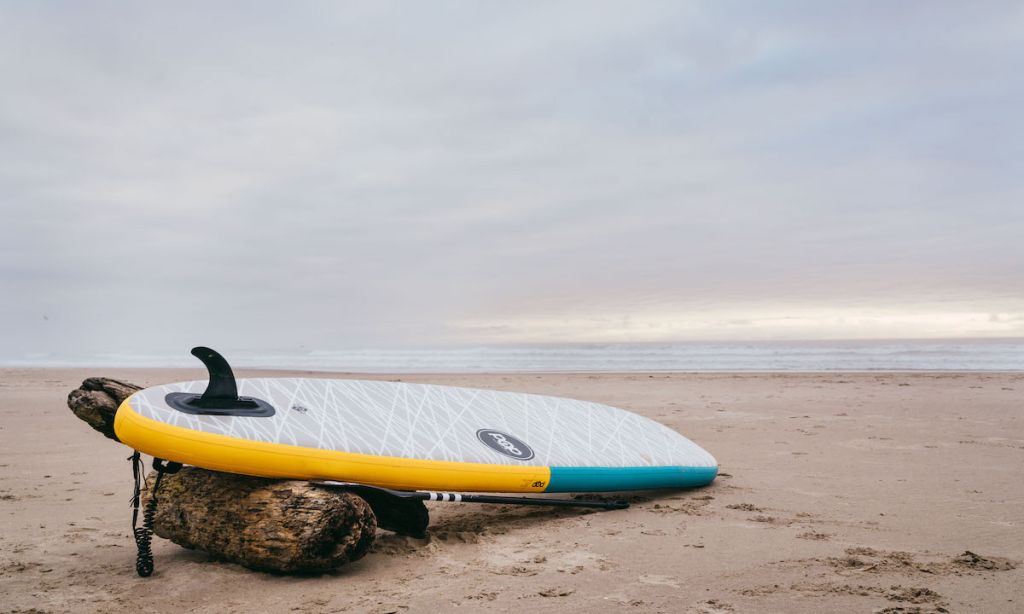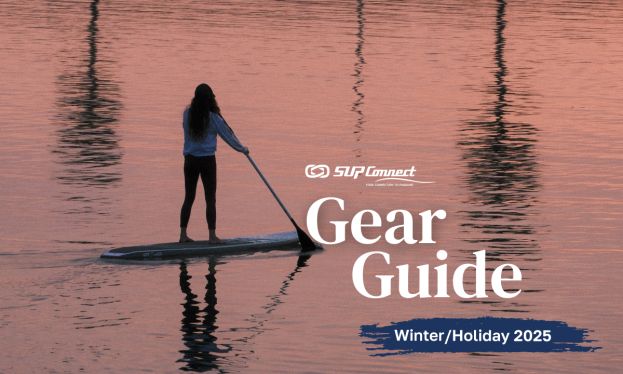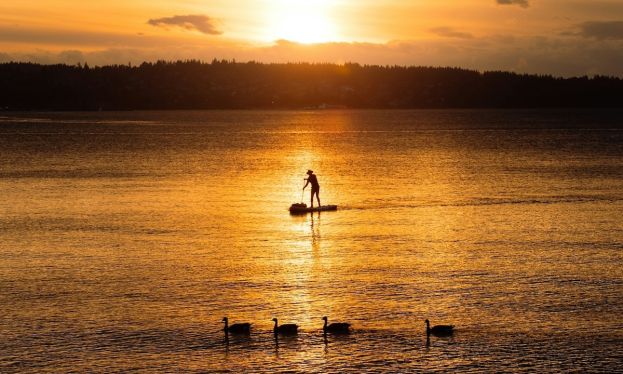Tips for Paddle Boarding if You're Overweight
- Written by Staff
- Published in Tips
- Comments::DISQUS_COMMENTS
Ever since modern paddle boarding was invented in the 1940s, it has become an excellent way for beginners and veterans alike to calm the mind, all while getting a full-body workout. It can be done on any body of water large enough to paddle in, making it accessible to many. And because it’s low-impact, those who are overweight and on a weight loss journey don’t have to feel pressure to be super-fit to do the exercise. However, some people may not know whether they’re overweight or not. Data from the National Health and Nutrition Examination survey shows that 40% of respondents fell under the medical definition of being overweight, but 10% do not consider themselves to be overweight.
The same happens with those who are obese: in another study of a rural population, only 14% of patients with obesity were able to identify their weight status correctly. These two terms are not interchangeable, though. There is a vast difference between being obese vs overweight. They are defined by the Body Mass Index (BMI) classification system, which uses weight-height proportions. An individual with a BMI of 25 to 29.9 is considered overweight, while those with a BMI of 30 and above are considered to be in the obesity range.
That said, a BMI is not the end-all and be-all of overall health, as it fails to consider factors like genetics, sleep quality, fat distribution, and other factors. However, knowing if you are overweight is ideal if you want to pursue sports such as paddle boarding – it gives you a baseline to begin with if you have a weight goal. It also helps you plan a sustainable paddle board routine that suits your fitness level. Here are a few more tips to ensure your paddle board experience is smooth sailing – we mean, paddling.
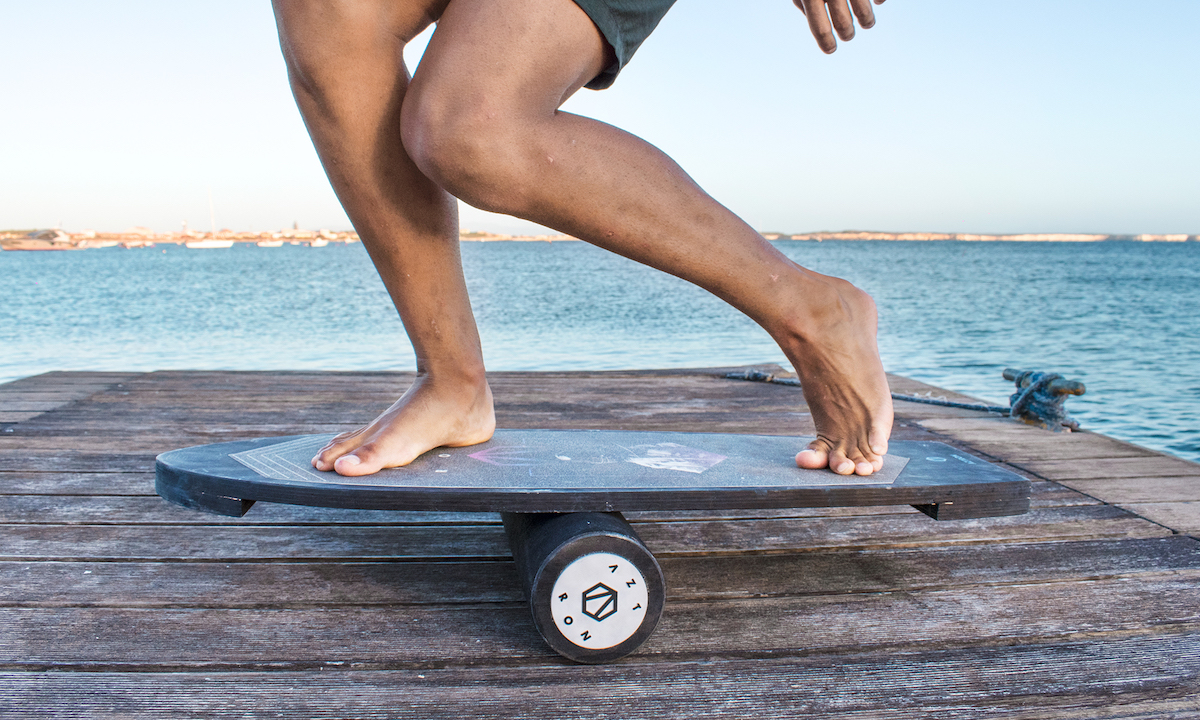 Photo courtesy: Aztron
Photo courtesy: Aztron
Testing the waters with a balance board
Staying on a paddle board requires good balance. If you’re anxious about your balance skills, you can invest in a balance board first. This is an at-home tool you can use to improve your coordination, motor skills, and reaction time on a simulated wobbly surface; one study showed that balance board training improved both balance and jumping accuracy in men who had chronic ankle instability. Begin by practicing your starting position – both feet hip-distance apart, back straight, knees slightly bent – and when you’ve got that down pat, you can start doing more complicated routines incorporating movement and maneuvering.
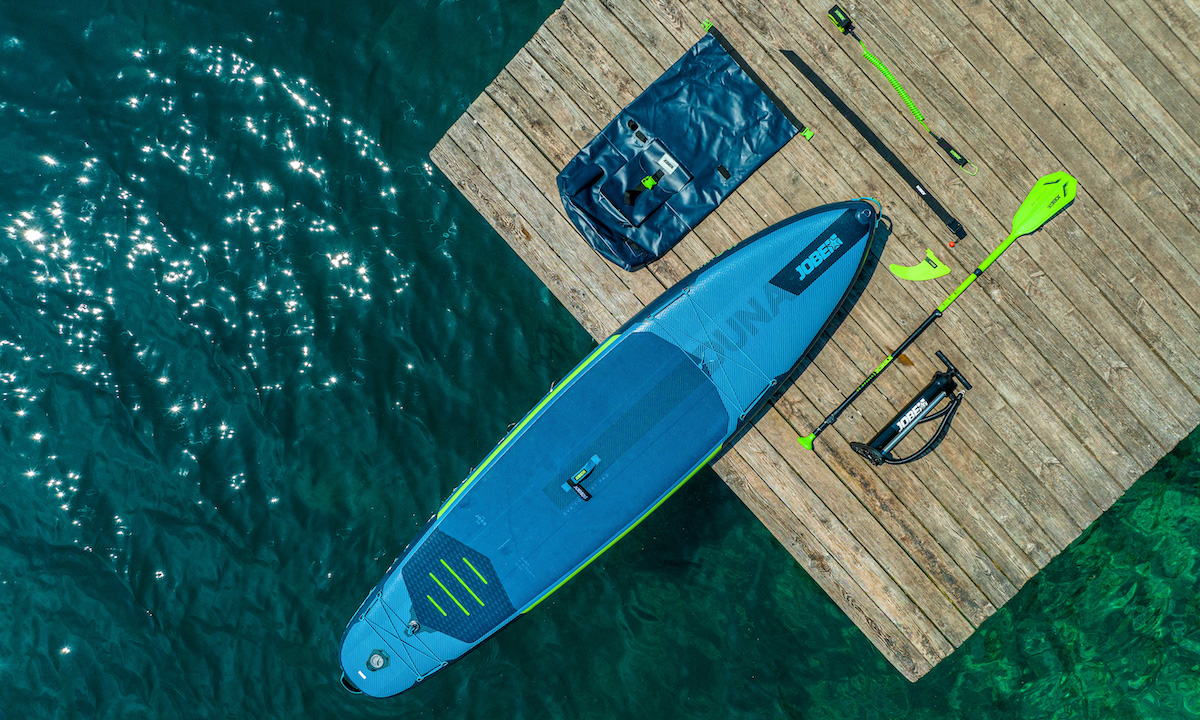 Photo courtesy: JOBE
Photo courtesy: JOBE
Having the right equipment
Bikes have different frame sizes for different heights. In the same vein, paddle boards have various weight capacities based on size and volume. What your paddle board is made of can also influence its weight capacity – some inflatable boards can hold over one thousand pounds of weight. Remember, if your weight causes a board to sink too low, you may feel drag, affecting performance. Meanwhile, if you are too light for a board, the lack of a sink will make the board feel heavier and could be more challenging to control. You can do some research to find the correctly sized paddle board that can adequately support you while considering the water environment.
 Photo courtesy: Surftech / Gavin Frazer
Photo courtesy: Surftech / Gavin Frazer
Watching your nutrition
Paddle boarding may be low-intensity, but the muscle control it takes to board balance for hours, potentially under the blazing sun, means you need to be mindful of nutrient intake. To support weight management as you paddle board, you’ll want to fill up with healthier sources of protein, fat, and just the right amount of carbohydrates. For instance, avocadoes could be an alternative to red meat to get your dose of fat.
Contrary to popular belief, people of all ages, sizes, and fitness levels can become skilled paddle boarders with enough practice and patience. It has less to do with your physique and more with your balance, strength, and, most importantly, your willingness to learn. As they say, it’s not about how you fall but how well you get back up on the board.

Staff
Submit your news, events, and all SUP info, so we can keep promoting and driving the great lifestyle of stand up paddling, building its community, and introducing people to healthier living.
Website: supconnect.com Email This email address is being protected from spambots. You need JavaScript enabled to view it.
